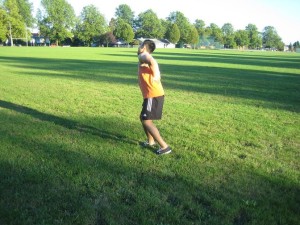Severe acute respiratory syndrome or SARS is a respiratory condition that is caused by SARS-associated coronavirus (SARS-CoV). Always bear in mind that the coronaviruses are the usual cause of various upper respiratory illnesses including common cold.
The first reported case occurred in China back in 2002 but since then, the virus has spread to other parts of Asia, North America and Europe.
Symptoms of SARS
A diagnosis of SARS is given if an individual has the following symptoms:
- Body temperature higher than 100.4 degrees
- One or several symptoms of respiratory illness such as shortness of breath, cough, difficulty breathing or hypoxia or an X-ray that reveals acute respiratory distress syndrome or pneumonia. The symptoms typically develop 2-7 days after initial symptoms such as body aches, headache and generalized feeling of discomfort.
The symptoms typically develop 2-7 days after initial symptoms such as body aches, headache and generalized feeling of discomfort. - Recently travelled within the last 10 days to mainland China, Vietnam, Hong Kong, Hanoi, Taiwan, Singapore or Toronto, Canada or came in close contact with the last 10 days with someone who has travelled to one of these areas who have been diagnosed with SARS.
- Laboratory findings of SARS
How do I acquire SARS?
The usual way for an individual to acquire SARS is via direct contact with infectious material from an infected individual such as touching the skin or objects contaminated with infectious droplets from a sneeze or cough. It is also possible that SARS can spread widely via the air or others ways that are not yet currently known.
Based on available information, individuals who are infected with SARS are likely to spread the condition to others when they have symptoms. It is not known how long before or after the symptoms start that SARS might be able to spread to others.
Individuals who have the highest risk of acquiring SARS are those who travelled and returned from areas of the world with reported cases of the condition. In areas where there are outbreaks, those at risk are those who were in direct contact with an infected individual.
How long does the condition develop?
After being exposed to SARS, it takes between 2-10 days for the condition to develop. Just like with common cold, always bear in mind that not all who is in contact with the virus develops the condition.
Treatment
At this point, there are no medications, vaccinations or antiviral therapies that specifically target SARS. Individuals who were diagnosed with the condition are treated as if they had pneumonia. Luckily, most cases seem to recover fully as long as treatment is started.
What to do if I have symptoms?
- It is vital to cover your mouth and nose while sneezing and always use a face mask if possible.
- Observe regular hand washing especially after blowing the nose.
- Avoid sharing any items with family members until they have been washed with water and soap such as towels, silverware and bedding.
- Always keep surfaces such as doorknobs, countertops and bathroom fixtures clean by using household disinfectant and disposable gloves.
- Reduce exposure outside the house for 10 days after the respiratory symptoms and fever are completely gone. It is not advisable to go to work, school or in other public areas.


